
Athletes
Athletes know about sore muscles—the burning sensation during strenuous exercise, which may be related to the buildup of lactic acid in your muscles, and delayed-onset muscle soreness, the kind you get in the days following extreme physical activity. Optimizing recovery from exercise is considered the holy grail of exercise science.
Muscle biopsies of athletes have confirmed that eating blueberries, for example, can significantly reduce exercise-induced inflammation. Studies using cherries show that this anti-inflammatory effect can translate into faster recovery time, reducing the strength loss from excessive bicep curling, and the muscle-soothing effects of berries don’t only work for weight lifters; follow-up studies have shown that cherries can also help reduce muscle pain in long-distance runners and aid in recovery from marathons. Eating two cups of watermelon before intense physical activity may also significantly reduce muscle soreness.
What about oxidative stress? When you use oxygen to burn fuel in your body, free radicals can be produced, just as cars burning fuel produce combustion byproducts. This happens even if you’re just idling, living your day-to-day life, but if you rev things up, start exercising, and really start burning fuel, can increasing intake of antioxidant-rich foods help athletes?
Indeed, use antioxidant-rich foods to douse the free radicals. Whether it’s about training longer or living longer, the science seems clear. Your quality and quantity of life improves when you choose whole plant foods—and not only for athletes.
Learn more about the effects of a special type of fiber found in baker’s, brewer’s, and nutritional yeasts on maintaining white blood cell counts after exercise and feelings of tenseness, fatigue, confusion, and anger, as well as the impacts of beet juice on performance and energy production.
It seems sports news programs are always talking about steroids and other illegal performance-enhancing drugs. Why hasn’t anyone mentioned these mighty and perfectly legit performance-enhancing vegetables? Beets me.
For substantiation of any statements of fact from the peer-reviewed medical literature, please see the associated videos below.
Popular Videos for Athletes


Are the Benefits of Cold Plunges and Cryotherapy Just a Placebo Effect?
There have been five placebo-controlled studies on cold water immersion. What did they find?
Best Temperature, Timing, and Duration for Cold Plunges for Athletic Performance Recovery
What are the effects of cold water immersion on the recovery of physical performance compared...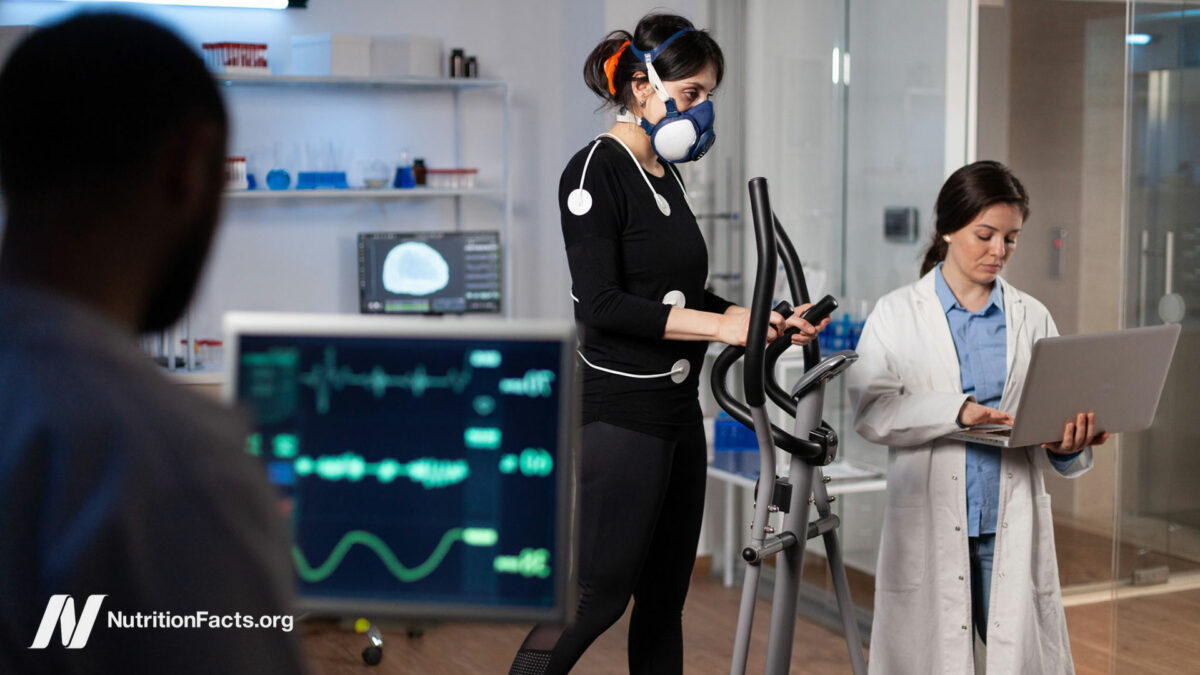
Improving VO2 Max: A Look at Vegetarian and Vegan Athletes
Plant-based diets improve the performance of athletes and nonathletes alike.
Do Alkaline Diets Help Athletic Performance?
Can reducing acid-forming foods and boosting alkaline-forming foods replicate the performance-enhancing effects of sodium bicarbonate...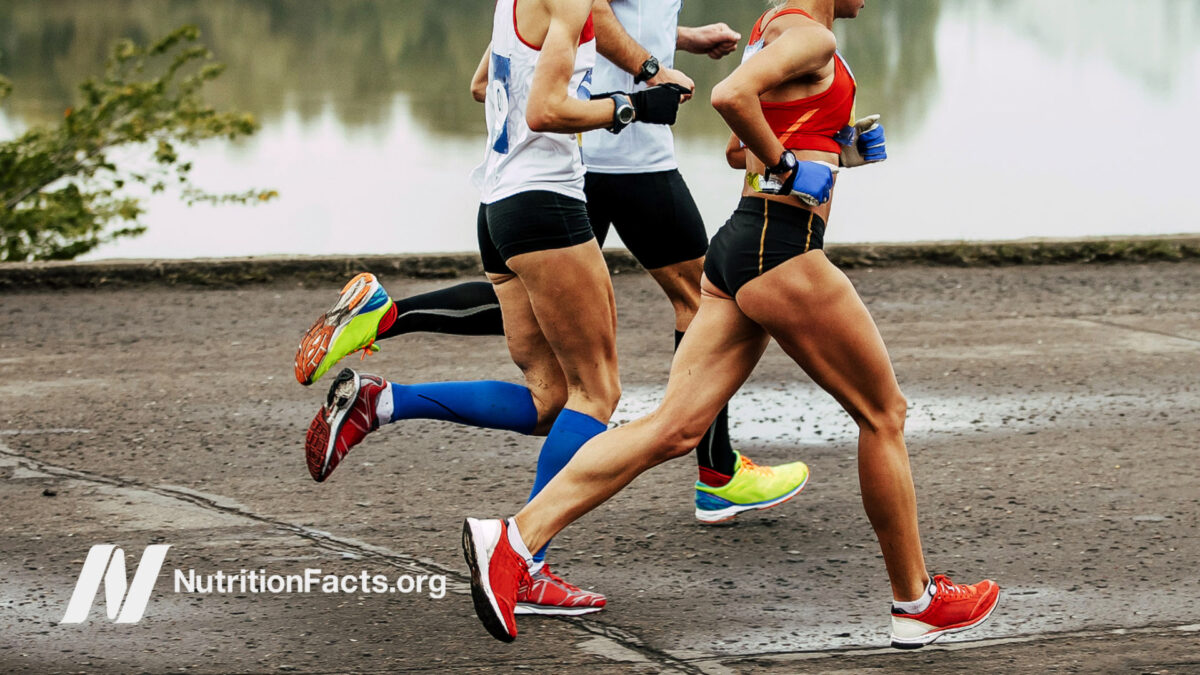
Why All Athletes Should Eat Plant-Based Diets
Enhance athletic performance with diet.
The Gladiator Diet: How Vegetarian Athletes Stack Up
Comparing the diets of the Roman gladiator “barley men” and army troopers to the modern...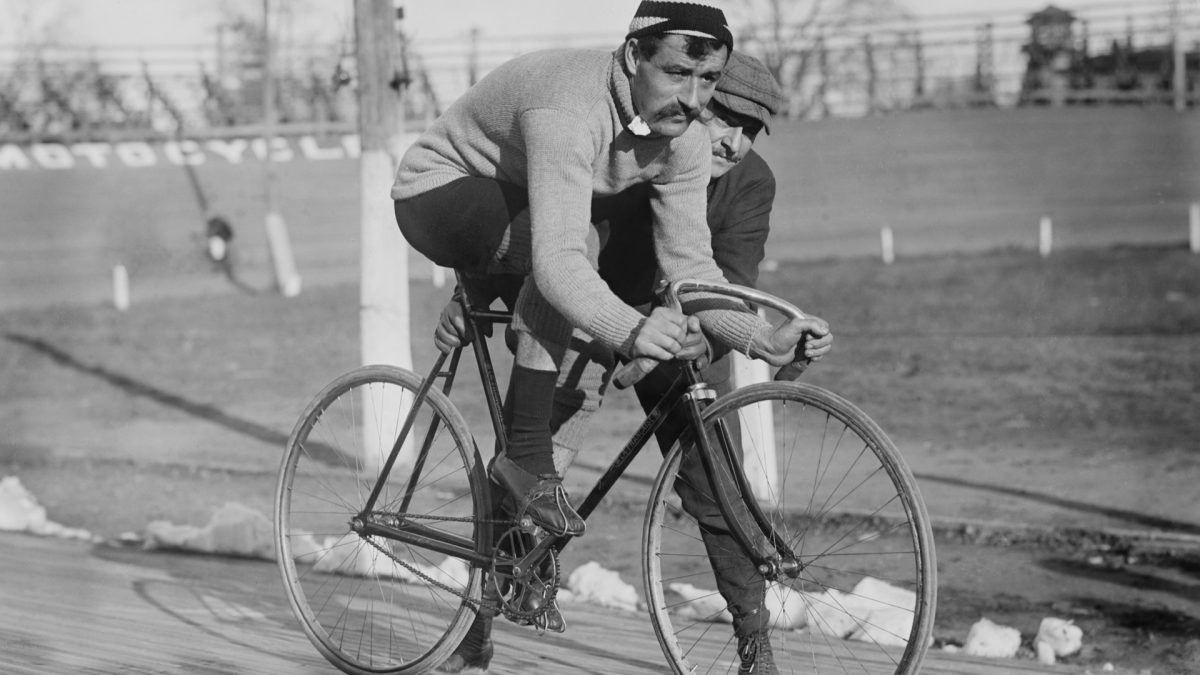
The First Studies on Vegetarian Athletes
Meat-eating athletes are put to the test against veg athletes and even sedentary plant-eaters in...
Vegetarian Muscle Power, Strength, and Endurance
Randomized controlled trials put plant-based eating to the test for athletic performance.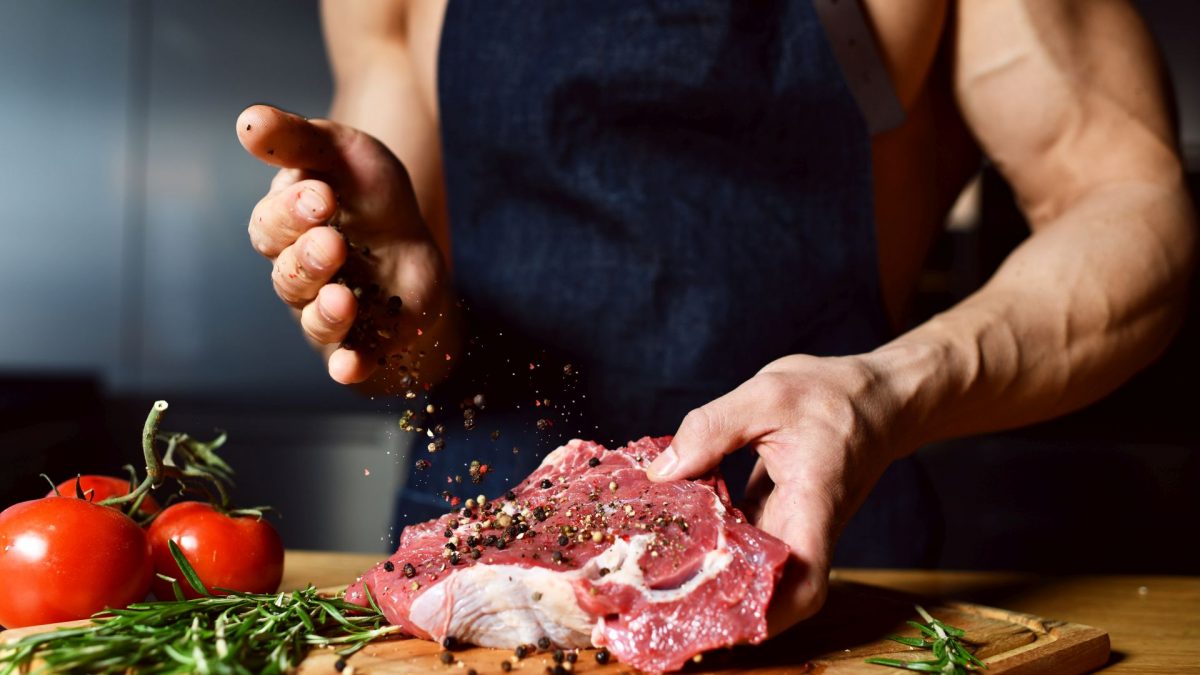
Keto Diets: Muscle Growth and Bone Density
Ketogenic diets found to undermine exercise efforts and lead to muscle shrinkage and bone loss.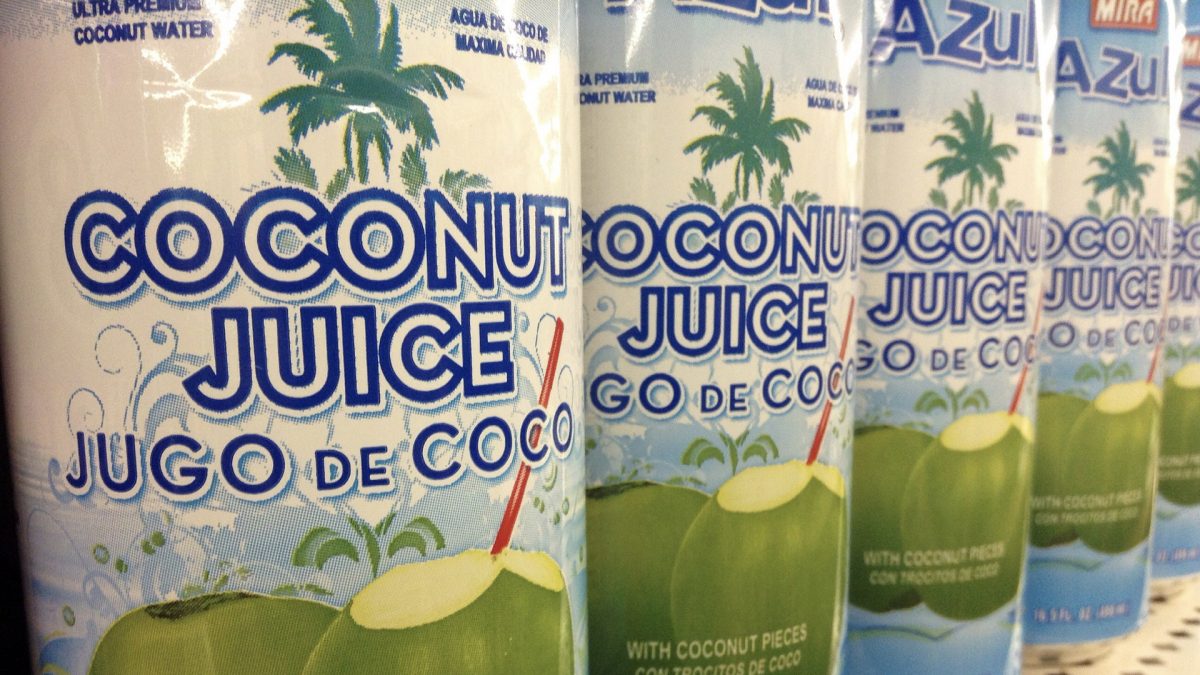
Coconut Water for Athletic Performance vs. Sports Drinks
Coconut water is tested head-to-head against plain water and sports drinks in athletes.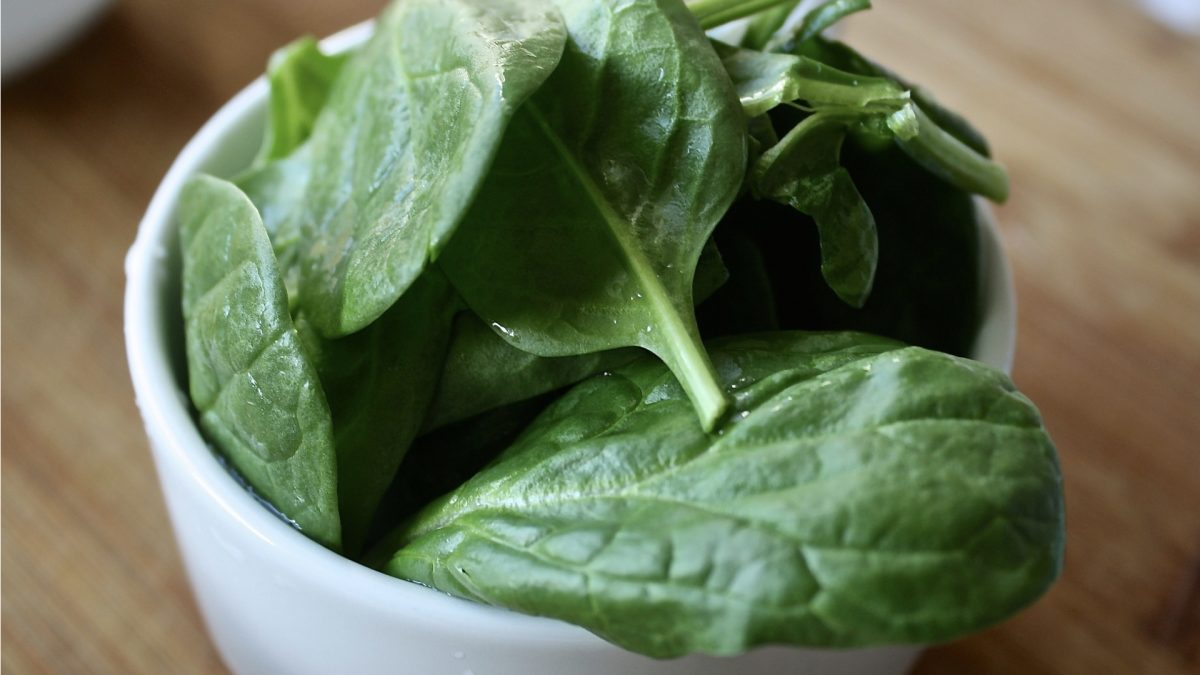
Foods to Improve Athletic Performance and Recovery
What are the effects of spinach and berries on oxidative stress, inflammation, and muscle soreness...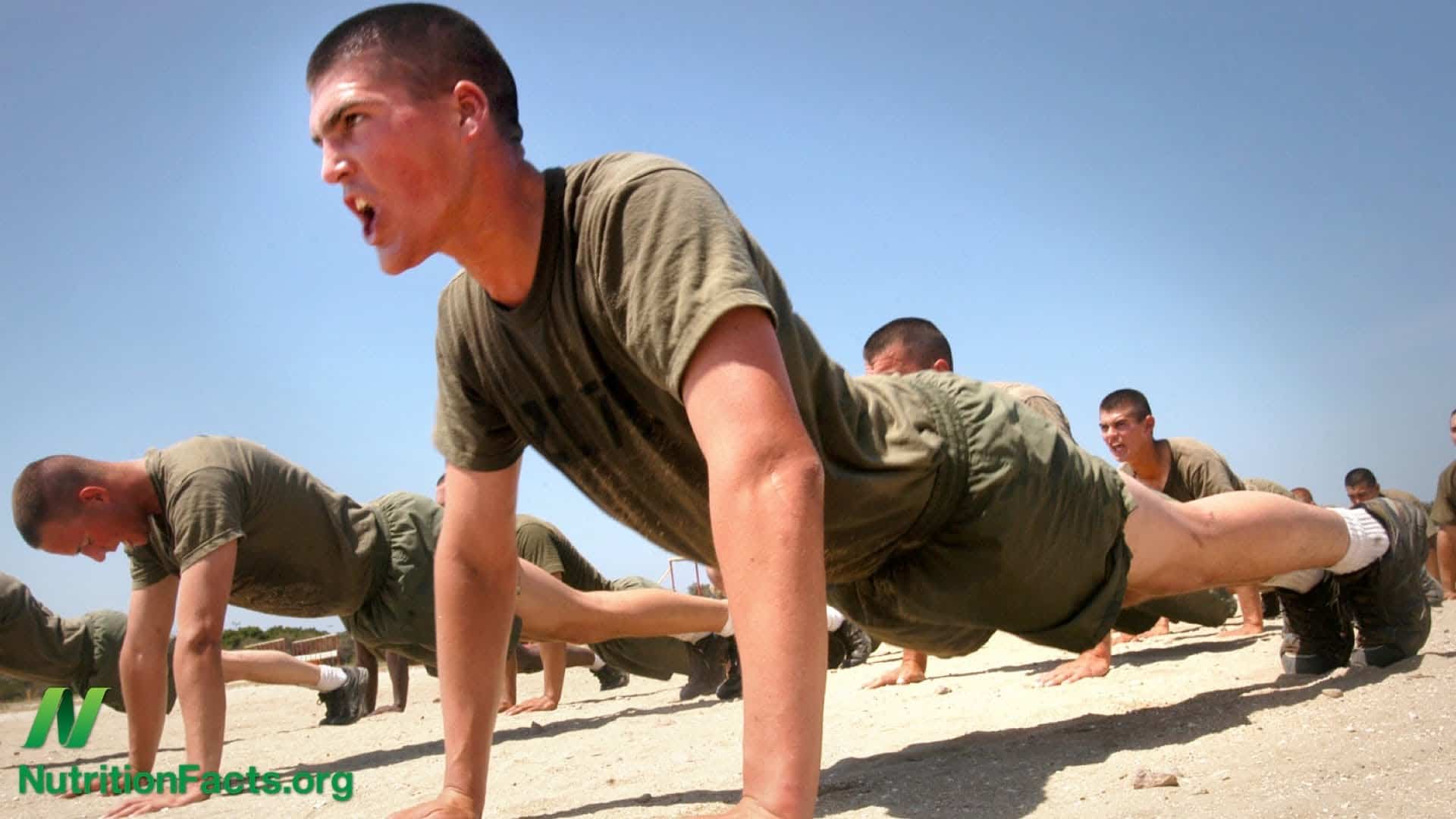
Doping with Beet Juice
Beets found to significantly improve athletic performance while reducing oxygen needs—upsetting a fundamental tenet of...
Whole Beets vs. Juice for Improving Athletic Performance
What is the latest science on the performance-enhancing qualities of nitrate-rich vegetables?
Reducing Muscle Soreness with Berries
Anti-inflammatory phytonutrients in berries may explain why cherries can speed recovery after a marathon—by reducing...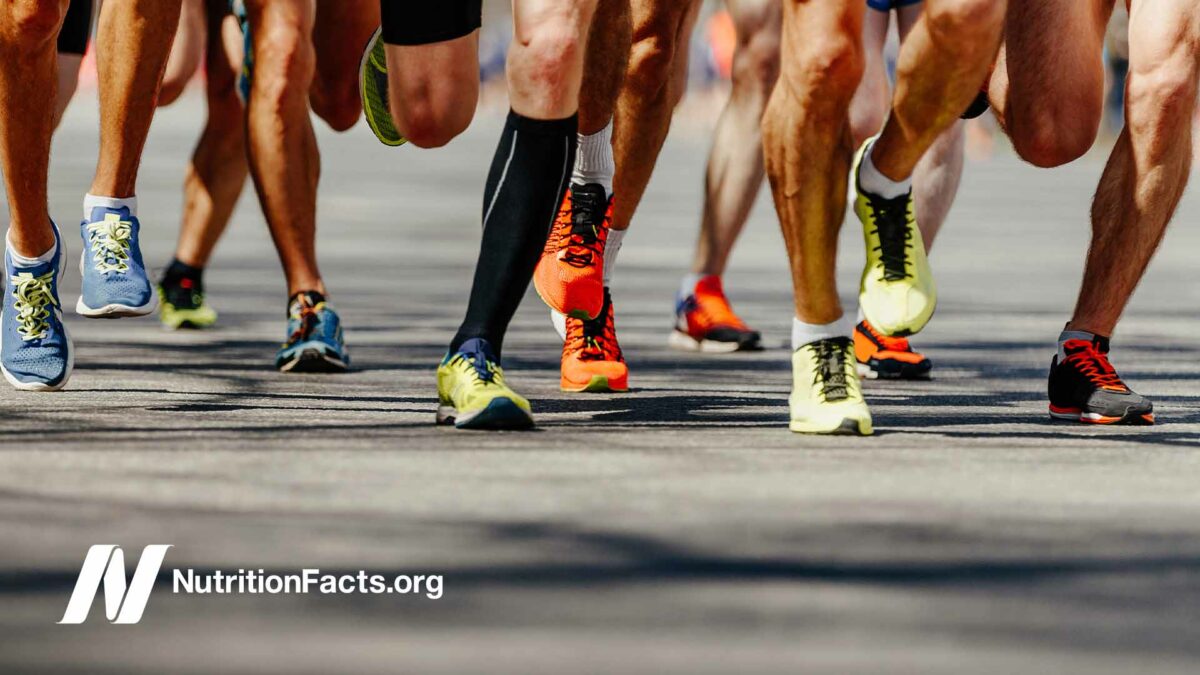
Preserving Immune Function in Athletes with Nutritional Yeast
Athletes who overtrain may put excessive stress on their bodies, and become more susceptible to...All Videos for Athletes
-

The Negative Effects of Cold Plunges for Building Muscle
Cold plunges following strength training are discouraged since they substantially attenuate long-term gains in muscle mass.
-

Are the Benefits of Cold Plunges and Cryotherapy Just a Placebo Effect?
There have been five placebo-controlled studies on cold water immersion. What did they find?
-

Best Temperature, Timing, and Duration for Cold Plunges for Athletic Performance Recovery
What are the effects of cold water immersion on the recovery of physical performance compared to active recovery and doing nothing?
-

What Is Creatine? Can It Treat Sarcopenia (Muscle Loss with Age)?
When accompanied by a progressive strength-training regimen, 3 grams of creatine a day may improve muscle performance in older adults.
-

Improving VO2 Max: A Look at Vegetarian and Vegan Athletes
Plant-based diets improve the performance of athletes and nonathletes alike.
-

Comparing Vegetarian and Vegan Athletic Performance, Endurance, and Strength
Long-term plant-based eating may improve exercise capacity and endurance.
-

Do Alkaline Diets Help Athletic Performance?
Can reducing acid-forming foods and boosting alkaline-forming foods replicate the performance-enhancing effects of sodium bicarbonate without the adverse effects?
-

Why All Athletes Should Eat Plant-Based Diets
Enhance athletic performance with diet.
-

How Useful Is Personalized Nutrition?
Perhaps it should be less about personalized nutrition and more about taking personal responsibility for your health.
-

Keto Diets: Muscle Growth and Bone Density
Ketogenic diets found to undermine exercise efforts and lead to muscle shrinkage and bone loss.
-

Do the Health Benefits of Coffee Apply to Everyone?
Genetic differences in caffeine metabolism may explain the Jekyll and Hyde effects of coffee.
-

Vegetarian Muscle Power, Strength, and Endurance
Randomized controlled trials put plant-based eating to the test for athletic performance.
-

The First Studies on Vegetarian Athletes
Meat-eating athletes are put to the test against veg athletes and even sedentary plant-eaters in feats of endurance.
-

The Gladiator Diet: How Vegetarian Athletes Stack Up
Comparing the diets of the Roman gladiator “barley men” and army troopers to the modern Spartans of today.
-

Best Brain Foods: Greens and Beets Put to the Test
Cocoa and nitrite-rich vegetables, such as green leafies and beets, are put to the test for cognitive function.
-

Are There Benefits of Energy Drinks?
The effects of Red Bull and Monster brand energy drinks on artery function and athletic performance.
-

Ground Ginger to Reduce Muscle Pain
There have been at least eight randomized, double-blind, placebo-controlled trials of ginger for pain.
-

Foods to Improve Athletic Performance and Recovery
What are the effects of spinach and berries on oxidative stress, inflammation, and muscle soreness in athletes?
-

Are Sports Drinks Safe and Effective?
Commercial influences may have corrupted the American College of Sports Medicine’s hydration guidelines.
-

Coconut Water for Athletic Performance vs. Sports Drinks
Coconut water is tested head-to-head against plain water and sports drinks in athletes.
-

Apple Peels Put to the Test for Chronic Joint Pain
Are the health benefits associated with apple consumption simply due to other healthy behaviors among apple-eaters?
-

Best Food to Counter Stress-Induced Immune Suppression
How might we improve immune function in children and adults under physical or psychological stress?
-

Dr. Greger in the Kitchen: My New Favorite Beverage
Dr. Greger blends up a vegetable smoothie inspired by a recipe in his How Not to Die Cookbook.
-

Natural Treatment for Acne and Fungal Infections
Green tea may help with athlete’s foot, dental plaque, acne, impetigo, and bladder infections, but if it’s so good at killing bacteria, what may it do to our gut flora?
-

What Causes Insulin Resistance?
Prediabetes and type 2 diabetes are caused by a drop in insulin sensitivity blamed on “intramyocellular lipid,” the buildup of fat inside our muscle cells.
-

Finger on the Pulse of Longevity
To maximize our lifespan, the target resting heart rate may be one beat a second or less.
-

Fennel Seeds to Improve Athletic Performance
What are the pros and cons of fennel fruits as a cheap, easy-to-find, light-weight, nonperishable source of nitrates?
-

Preserving Athlete Immunity with Chlorella
The green algae, chlorella, may help attenuate the drop in immune function antibodies associated with over-strenuous exercise.
-

“Veg-Table” Dietary Nitrate Scoring Method
What is the optimal timing and dose of nitrate-containing vegetables, such as beets and spinach, for improving athletic performance?
-

Whole Beets vs. Juice for Improving Athletic Performance
What is the latest science on the performance-enhancing qualities of nitrate-rich vegetables?
-

Music as Medicine
Music can beat out anti-anxiety drugs, Mozart can reduce allergic reactions, and how listening to your favorite tunes can significantly affect your testosterone levels.
-

Nutritional Yeast to Prevent the Common Cold
Beta glucan fiber in nutritional yeast may improve immune function, but there is a concern about lead contamination in some brands.
-

What Causes Insulin Resistance? (Older Version)
Prediabetes and type 2 diabetes are caused by a drop in insulin sensitivity blamed on “intramyocellular lipid,” the buildup of fat inside our muscle cells.
-

Enhancing Athletic Performance with Peppermint
Study finds remarkable improvements in exercise performance drinking homemade peppermint water, but there may be side effects.
-

Caloric Restriction vs. Plant-Based Diets
What is the best strategy to lower the level of the cancer-promoting growth hormone IGF-1?
-

Hibiscus Tea vs. Plant-Based Diets for Hypertension
How do the blood-pressure lowering effects of hibiscus tea compare to the DASH diet, a plant-based diet, and a long-distance endurance exercise?
-

Telomeres: Cap It All Off with Diet
Is the reversal of cellular aging Dr. Dean Ornish demonstrated with lifestyle changes due to the plant-based diet, the exercise or just to the associated weight loss?
-

Barriers to Heart Disease Prevention
According to the Director of the famous Framingham Heart Study, the best way to manage cholesterol and heart disease risk is with a more plant-based diet. Why then, don’t more doctors advise their patients to change their diets?
-

Treating Hepatitis C with Chlorella
Improvements in natural killer cell immune function may explain both the anti-cancer benefits of exercise as well as the apparent anti-virus effects of the green algae chlorella.
-

Preventing Exercise-Induced Oxidative Stress with Watercress
Those eating a more plant-based diet may naturally have an enhanced antioxidant defense system to counter the DNA damage caused by free radicals produced by high-intensity exercise.
